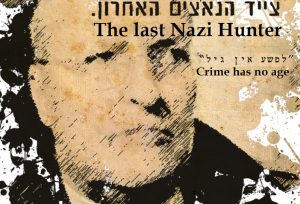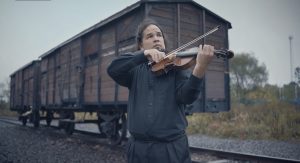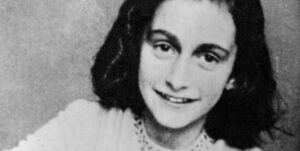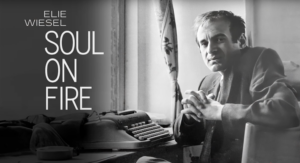
Past Events
Events List Navigation
The Jewish History of Comic Book Superheroes

1 PM LOS ANGELES • 4 PM NEW YORK
Do you know the secret Jewish history of comic books? Have you heard the Jewish stories behind iconic characters such as Superman and Spider-Man? And how comic books have portrayed the Holocaust? Tune into this free program to find out.
The Last Nazi Hunter

11 AM LOS ANGELES • 2 PM NEW YORK
The film The Last Nazi Hunter tells the dramatic true story of Dr. Efraim Zuroff and his decades long efforts to bring Nazi war criminals to justice. See the film and then meet him in person. A rare opportunity! Zuroff will be in dialogue with Dr. Mordecai Paldiel, who will also speak about a few individuals who were both Nazi collaborators and rescuers of Jews, and how Yad Vashem handled such cases.
The Daring Rescue of Denmark’s Jewish Community

11 AM LOS ANGELES • 2 PM NEW YORK
The collective rescue action that saved about 95% of the Danish Jewish population in October 1943 is a unique story in the annals of Holocaust rescue. New York’s Museum of Jewish Heritage currently has on view a must-see exhibition about this story, designed for young people, ages 9 and up, and their families. Meet the curator who created this exhibition, the historian who consulted on it and a Holocaust survivor who was himself born in Denmark.
Cartoonists Against Racism: The Secret Jewish War on Bigotry

BOOK LAUNCH EVENT!
1 PM LOS ANGELES • 4 PM NEW YORK
Cartoonists Against Racism uncovers the secret campaign spearheaded by the American Jewish Committee to create anti-racist comics and cartoons to flood America’s newspapers, classrooms, and union halls during World War II. Meet the artists and the work that was their ammunition in the battle for America’s soul.
Women’s Resistance at Auschwitz

11 AM LOS ANGELES • 2 PM NEW YORK
Sabotage tells the dramatic and unknown story of the women’s underground operation in Auschwitz-Birkenau. It is a story of feminine heroism, resistance, hope and tragedy, told through the eyes of Anna Heilman, sister of Estera Wajcblum, the youngest member of the women’s resistance group, that also included Róza Robota, Ella Gärtner and Regina Safirsztajn. These heroic women, whose names we should remember, helped plan and implement the Sondercommando Revolt of October 7, 1944.
Operation Wedding — The Story of Soviet Jews Who Cracked the Iron Curtain

11 AM LOS ANGELES • 2 PM NEW YORK
Leningrad, 1970. A group of Soviet Jews who were denied exit visas plots to hijack an empty plane and escape the USSR. 45 years later, filmmaker Anat Zalmanson-Kuznetsov reveals the compelling story of her parents, leaders of the group, “heroes” in the West but “terrorists” in Russia, even today.
Walter Winchell and the Defeat of the German American Bund

1 PM LOS ANGELES • 4 PM NEW YORK
Walter Winchell, the newspaper columnist, radio commentator and television personality, pioneered the fast-paced, gossip-driven, politically charged journalism that dominates today. His on-air activism to his 50 million listeners during World War II helped to defeat the German American Bund, the US version of the Nazi party. While his post-war legacy is much more problematic, his enormously impactful wartime efforts are worthy of being remembered and celebrated.
Music as Resistance — Reconstructing the Lost Music of Auschwitz

11 AM LOS ANGELES • 2 PM NEW YORK
The Lost Music of Auschwitz tells the remarkable story of British composer Leo Geyer’s 8-year long mission to piece together a treasure-trove of forgotten fragments of music manuscripts found in the archives of the Auschwitz-Birkenau museum.
No Asylum — The Anne Frank Family’s Dreams of America

1 PM LOS ANGELES • 4 PM NEW YORK
Elie Wiesel — Soul on Fire

1 PM LOS ANGELES • 4 PM NEW YORK
Told largely through his own words and eloquent voice, Elie Wiesel — Soul on Fire seeks to penetrate to the heart of the known and unknown Elie Wiesel (1928-2016) — his passions, his conflicts and his legacy as one of the most public survivors of the trauma of the Holocaust. With unique access to personal archives, original interviews and employing hand-painted animation, the film illuminates Wiesel’s biography as a survivor, writer, teacher and public figure.


